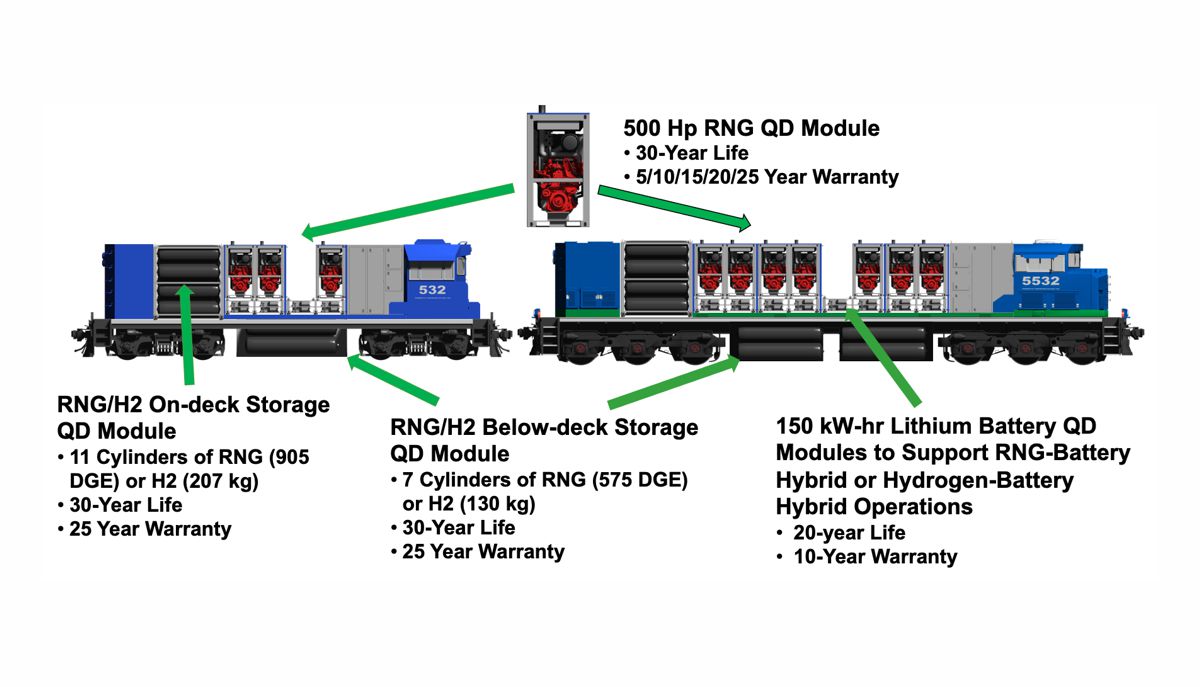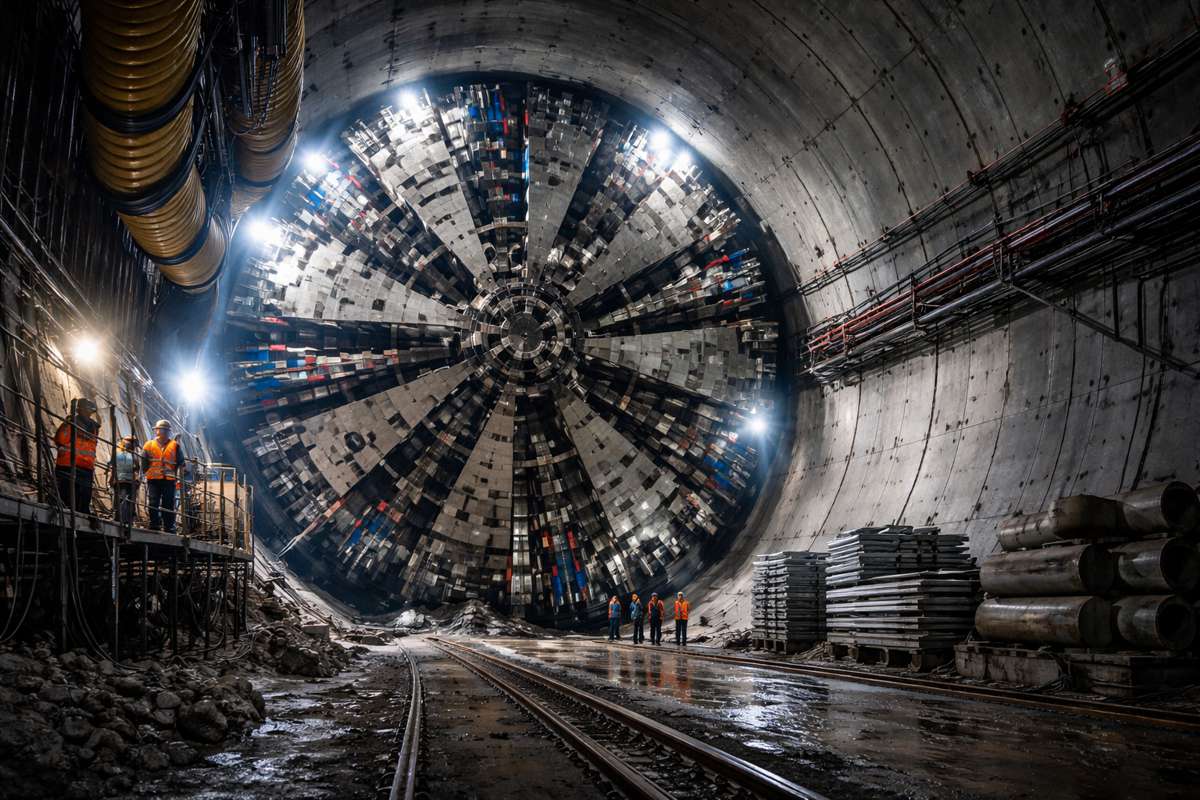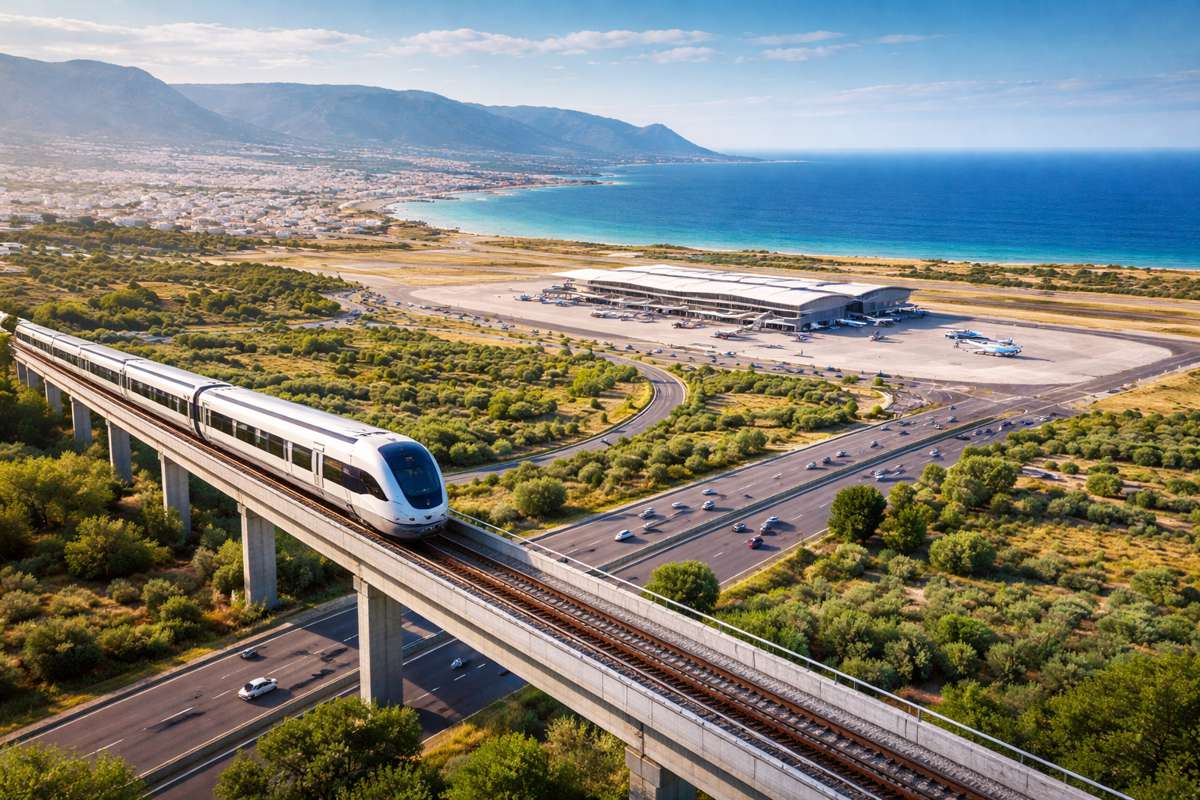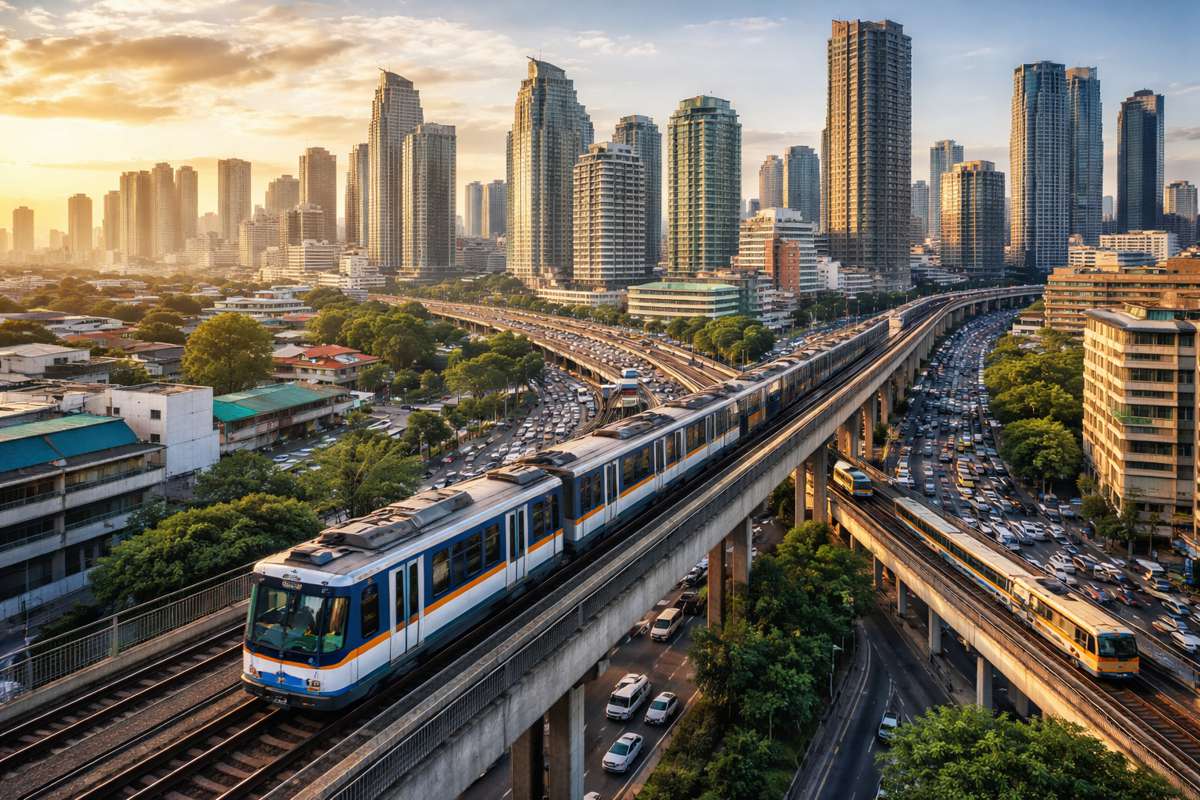OptiFuel transitioning 400 Freight Locomotive Fleet in Argentina
OptiFuel Systems, a decarbonization solutions provider of products and systems for eliminating emissions in the rail, marine, and power generation markets, has signed a Collaboration Agreement with the Argentina Ministry of Transportation through Ferrocarriles Argentinos Sociedad del Estado (F.A.S.E).
The objective of this agreement is to develop a project to repower and put into service 400 switcher and line haul freight locomotives, all 100% powered by compressed natural gas (CNG) and/or renewable natural gas (RNG) with low or zero emissions, in line with the Argentina’s decarbonization goals.
“Our Transportation Modernization Plan is about developing more infrastructure throughout the country, and it is also about innovative technology – such as this change in the energy matrix of our trains, to make them cleaner, more efficient, sustainable and cheaper,” said Argentina Transport Minister Alexis Guerrera. Argentina has prioritized government and public investment to grow the share of freight shipped by rail throughout the country. Over the next ten years, Argentina plans to modernize and decarbonize their entire 40,000-mile rail network, becoming the first country in the world with a complete railroad network operating with ZERO emissions.
“OptiFuel is excited about the opportunity to provide zero emission locomotives, tenders, and refueling equipment to Argentina,” said Scott Myers, President of OptiFuel. “OptiFuel developed and certified these technologies for rail because we believe there is a need for cleaner locomotives that drive increasing value to the world’s railroads, railroad customers, and communities.” Traditional locomotives run on diesel fuel, emitting high levels of NOx, PM, and CO2. OptiFuel’s zero emission rail engine solutions are powered by their EPA certified locomotive CNG/RNG engine rated at 0.00 g/bhp-hr for NOx, 0.000 g/bhp-hr for PM, and Negative CO2 using RNG.
OptiFuel is developing modular repower kits for diesel locomotives and new locomotives in all lengths, horsepower levels, and track gauges. For Argentina, OptiFuel will build locomotive kits in the US that will be shipped for local assembly in Argentina, creating new jobs and enhancing business in both countries. These kits will include OptiFuel’s zero emission CNG/RNG engines pods in a hybrid configuration (1500hp – 4500hp); locomotive control modules; and onboard CNG/RNG storage pods that can carry up to 2,000 diesel gallon equivalents (DGEs) of natural gas. OptiFuel will also provide powered tender cars (3,000 hp) that can carry 11,500 DGEs of CNG/RNG and construct an estimated 12-15 CNG fuel stations along Argentina’s rail network, each with the capacity to refuel a tender car in less than an hour.
According to Scott Myers, OptiFuel’s success in rail is due to their systems’ approach in addressing the global emissions dilemma. “We didn’t look at one railroad or even one country,” said Myers. “We stepped back even further and asked: How can we affordably integrate new technology and required infrastructure into the world’s massive railroad networks in a way that is gradual, flexible, reliable, and affordable? The first challenge was incorporating modern technology without sacrificing reliability. The second challenge was engineering flexibility into the system – railroads had different performance needs and access to different sources of power. Then there was the challenge of new technology. The average locomotive operates for more than 40 years! If we were going to begin adding the latest technology, we had to do it in a way in which updates and upgrades could be made efficiently and cost effectively. This led us to OptiFuel’s modular, affordable designs.”
It is OptiFuel’s position that RNG and green hydrogen are the most feasible zero-emission solutions for switcher locomotives, with RNG leading from a cost and accessibility perspective. For line haul operations in the US, RNG is the only practical zero-emission diesel-alternative solution. The reason for this is that RNG requires 2.5 times the volume to store energy versus diesel, and hydrogen requires 11 times the volume, while lithium batteries require 50 to 75 times. This means that the average 150-car train would have to replace almost 50% of the cars with battery tenders. Batteries are poor energy storage solutions for heavy horsepower use, and they require frequent recharging with traditional electricity.
The energy coming from the nation’s electric power grid still emits large amounts of criteria and GHG emissions. For this reason, replacing diesel locomotives with 100% battery-electric power would emit more CO2 into the atmosphere over a 10-year period than running 100% diesel over the same period. In addition, batteries start degrading the moment they are employed and are a very expensive storage solution with a short life. With the precarious availability of traditional grid power, and no commercial solutions for “end of life recycling or disposal” of large multi-megawatt battery packs, this creates a real problem for the total life cycle cost and sustainability goals for railroads.





























